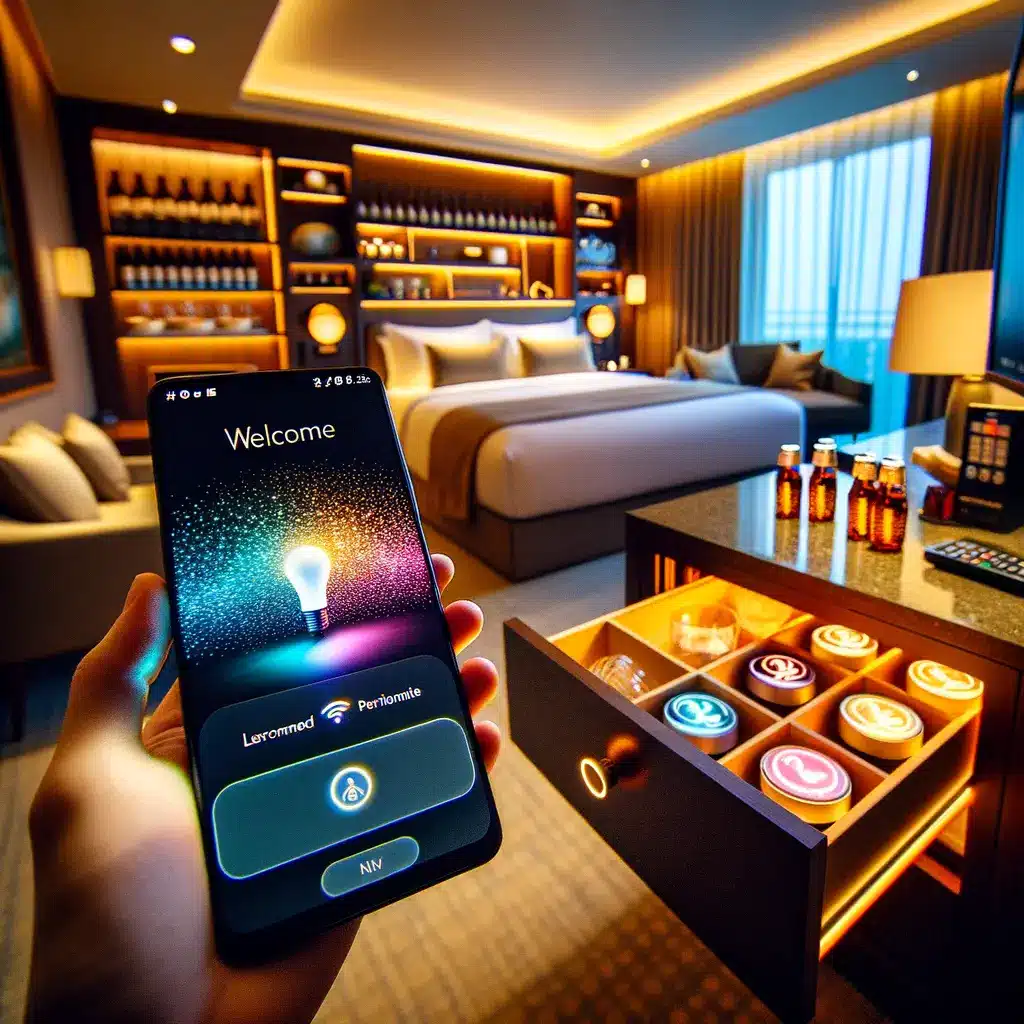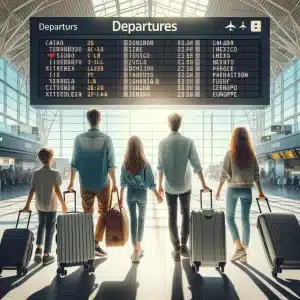Why Hospitality Trends 2024 Matter for Every Hotelier
The pace at which hospitality trends 2024 are reshaping the market is unprecedented. Travellers emerging from years of uncertainty now demand higher safety standards, deeper personalisation, and authentic, memorable stays. For hoteliers, staying ahead of these hotel industry trends 2024 can mean the difference between gaining market share or falling behind nimble competitors. In this guide we unpack the ten macro-trends highlighted at Independent Hotel Show Europe and explain what they mean for operations, marketing, design, and revenue management.
First, a word on why timing matters. Forward booking data from STR shows that average daily rates across Europe are expected to rise another 7-9 % in 2024, but RevPAR growth will increasingly accrue to properties that embrace new guest expectations. Whether you manage a 40-room boutique or a 500-key resort, implementing the right technology and guest-centric policies now positions you to capture demand during high-compression periods.
You’ll also discover practical examples—such as AI-driven pricing engines and members-only lounges—that can be rolled out quickly. Throughout each section we will reference related resources like our deep dive on descriptive pricing and our checklist for low-cost sustainability upgrades so you can keep learning. Let’s explore the ten defining hospitality trends 2024 and translate them into actionable strategies for your property.

Enhanced Security & Privacy: The New Cornerstone of Guest Trust
Global geopolitical tension is prompting hotels to rethink physical and digital safety. Elevated security protocols are no longer reserved for five-star resorts; they’re becoming a baseline expectation across hospitality trends 2024. Properties in city centres now install discreet X-ray scanners at entrances, while countryside retreats invest in gated perimeters and upgraded CCTV systems to guarantee tranquillity. A growing number of hotels are also creating members’ clubs or guest-only zones—reinforcing a sense of exclusivity and safety.
From a technology perspective, biometric key cards and mobile credential solutions such as ASSA ABLOY Mobile Access reduce lost-key risk and improve operational efficiency. Beyond hardware, staff training is equally critical. Consider partnering with local law enforcement to run quarterly emergency drills. That collaboration can double as positive PR while reassuring prospective guests scanning review sites for safety mentions.
Privacy extends into F&B outlets too. Expect to see hidden-away speakeasy bars where only registered guests can book tables via QR codes on the in-room tablet. These adaptations simultaneously satisfy hotel guest experience trends and unlock incremental beverage revenue. For a tactical roadmap, read our guide to crisis-management SOPs for independent hotels, which links to downloadable checklists and supplier contacts.

Hyper-Personalisation Powered by Hospitality Technology Trends
If 2023 was about contactless check-in, 2024 is about genuine one-to-one customisation. Artificial intelligence, big-data-driven CRMs, and Internet of Things devices converge to anticipate needs well before a guest arrives. Marriott’s Tribute Portfolio recently rolled out an AI engine that analyses pre-arrival surveys, flight data, and loyalty profiles to auto-configure room temperature, pillow types, and minibar selections. Similar solutions are now available off-the-shelf from vendors like Duetto and Oaky, making hyper-personalisation accessible even to 60-room independents.
The minibar itself is experiencing a revival—only now it’s a “Maxi Bar” stocked with locally canned cocktails, cold-pressed juices, and zero-waste snacks that mirror stated dietary preferences. Dynamic, AI-based pricing further tailors the offer, ensuring that yogis don’t pay craft-beer premiums and vice versa. Such practices illustrate how hospitality technology trends directly impact bottom lines while delighting guests.
Operationalising this trend requires tight integration between PMS, RMS, and guest messaging tools. A good starting point is mapping the full guest journey, then inserting personalisation triggers at each touchpoint: email pre-stay upsells, in-stay WhatsApp concierge messages, and post-stay souvenir recommendations. Watch the video below for real-world examples from Bavarian independents that increased ancillary spend by 18 % in six months.
Luxury, Wellness & Immersive Programming Redefine Experiences
Luxury is no longer confined to marble bathrooms. In the context of hospitality trends 2024, it manifests as transformative moments that transport guests away from everyday life. Five-star brands now commission Michelin-starred chefs for 10-seat pop-up dinners, yet equally invest in ‘micro-wow’ gestures: think surprise opera arias in the courtyard at sunset. Concurrently, wellness has evolved into a holistic, science-backed pillar. Sleep tourism packages—complete with circadian-rhythm lighting and on-demand diagnostics—are commanding ADR premiums of up to 25 %.
Hotels such as Six Senses have introduced hybrid wellness salons that merge IV vitamin therapy, infrared saunas, and mindful movement classes in a single subscription model. Independent properties can follow suit on a smaller scale by partnering with local nutritionists or sports therapists during high-season weekends. This aligns perfectly with wider hotel guest experience trends that favour purposeful activities over passive amenities.
Programming is the connective tissue tying luxury and wellness together. A well-curated seven-day calendar featuring DJ sets, rooftop yoga, culinary masterclasses, and storytelling theatre not only drives F&B spend but also encourages repeat visits from locals. Review our event-planning template to streamline collaborations with external performers while safeguarding brand coherence.

Local Authenticity & Story-Driven Theming Win Guest Loyalty
Travellers tired of generic décor want hotels that feel inseparable from their destination. Themed interiors inspired by local folklore, gastronomy, or cultural icons deliver that sense of place and reinforce sustainable hospitality trends by sourcing materials nearby. In Bavaria, for example, boutique hotels commission regional artisans to craft carved-wood headboards and hand-blown glass chandeliers, ensuring dollars spent stay in the community.
Programming also leans into locality: baking classes featuring heritage grains, art tours led by resident painters, and storytelling sessions that weave historical anecdotes into cocktail recipes. These immersive touches not only enrich the guest journey but also strengthen relationships with neighbours who may become frequent bar patrons. For further inspiration, see our piece on neighbourhood marketing strategies that drive mid-week occupancy.
Design execution must balance fantasy with function. An over-the-top fairy-tale aesthetic can backfire if it sacrifices ergonomic furniture or clear wayfinding. Collaborate with interior designers who understand both narrative layering and operational efficiency. Modern travellers will happily pay premium rates for authenticity but still expect USB-C ports by the bedside. Integrating QR-code plaques that explain the provenance of each artwork taps into the education-seeking mindset documented in recent hotel industry trends 2024 surveys.

Sustainable Hospitality Trends and the Road Ahead
The closing theme running through all hospitality trends 2024 is sustainability—not only environmental, but social and economic. Energy-efficient HVAC systems, smart water meters, and rooftop solar arrays are becoming baseline investments, often supported by government incentives that improve ROI. More advanced properties now calculate room-level carbon footprints and allow guests to offset emissions at checkout.
Equally important is social sustainability. Fair-wage certifications, inclusive hiring practices, and partnerships with local NGOs amplify your brand story while meeting growing traveller expectations. Remember, Gen Z and Millennial guests rank ethical alignment nearly as high as price when choosing accommodation.
Technology again plays a facilitating role. Cloud-based inventory systems minimise food waste by predicting consumption patterns, and AI chatbots steer guests toward low-impact activities. These measures dovetail with hotel industry trends 2024 focused on operational resilience in the face of labour shortages and supply-chain volatility.
In conclusion, embracing hospitality trends 2024—from fortified security and hyper-personalisation to experiential luxury and sustainability—positions your property for robust growth. Start with one or two quick wins, track KPIs rigorously, then scale. For next steps, consult our blueprint on green building retrofits and our explainer on AI-driven energy management. Your guests, staff, and bottom line will thank you.







